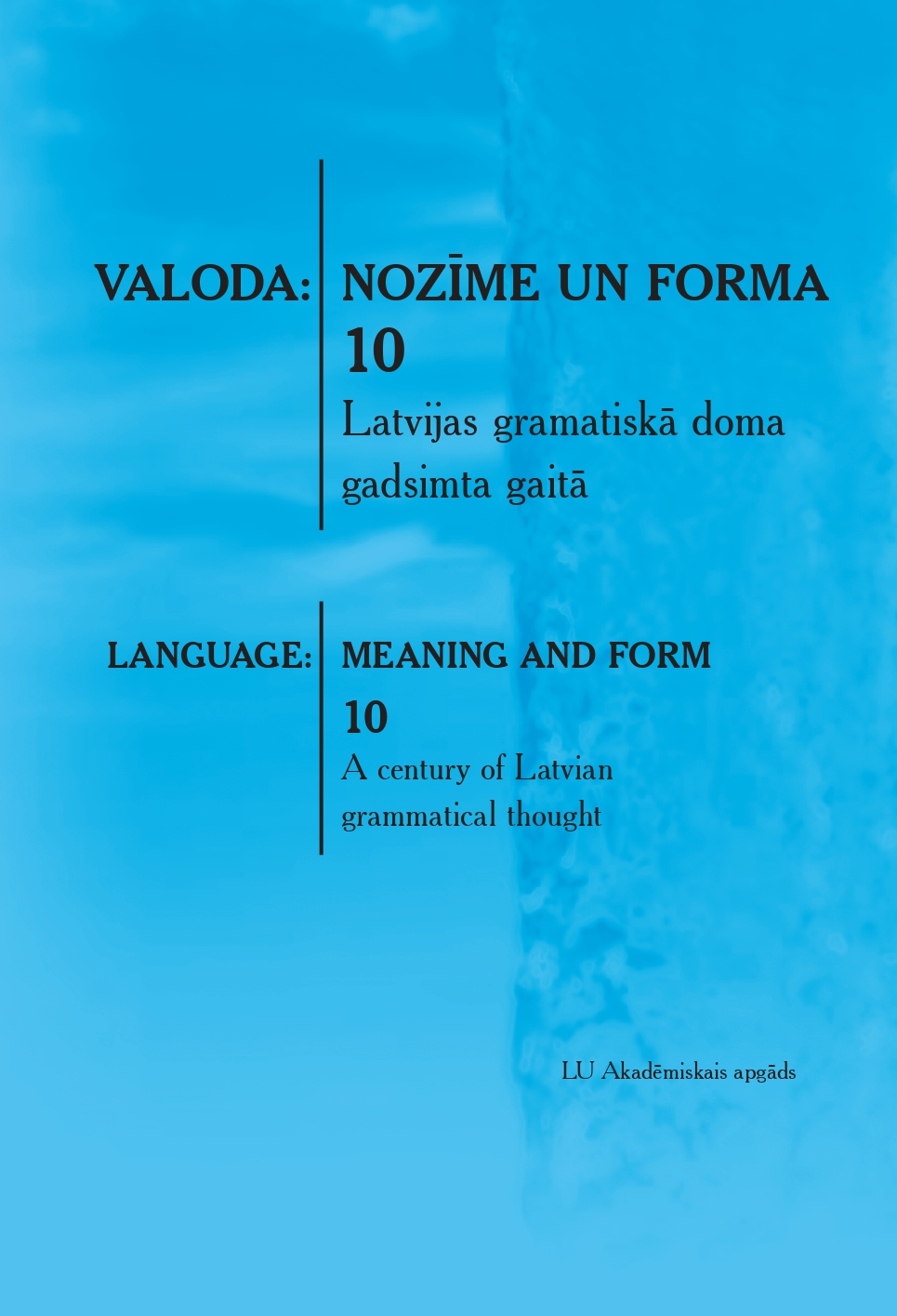Augusta Tenteļa pareizrakstības komisijas likumi un to atspulgi skolu mācību grāmatās un sabiedrībā
Spelling rules developed by the Spelling Commission of Augusts Tentelis and their reflection in books and the society
Author(s): Dzintra PaegleSubject(s): Phonetics / Phonology, Historical Linguistics, Baltic Languages
Published by: Latvijas Universitātes Akadēmiskais apgāds
Keywords: Augusts Tentelis; Ludis Bērziņš; Mārtiņš Gaide; Rūdolfs Grabis; Latvian orthography; language standardization; intelligence protest;
Summary/Abstract: The article reveals ups and downs of orthography at the end of 1930s, the alignment of orthography and changes in 1940s, and the influence of spelling rules on the use of the language nowadays. The article provides analysis of conclusions regarding spelling rules adopted under the supervision of Augusts Tentelis in 1938 and 1939. These “improvements” in the spelling directly affected the society, especially the content of schoolbooks. The article describes the development of several points in orthography-alphabet, use of long vowels ī IPA/iː/ and ā IPA/aː/ in the forms of verbs, forms of verbs in Simple Future second person plural form with ending -iet and the palatalized consonant ŗ IPA/rʲ/. The article provides a short insight into the protest on the part of the intellectuals against the orthography of 1938. To illustrate the orthography in practice, separate schoolbooks have been examined, specifying the biographic data of their authors Mārtiņš Gaide and Rūdolfs Grabis, and providing the main facts about the life of Augusts Tentelis and Ludis Bērziņš. The improvements introduced in the orthography by Tentelis caused disarray in the spelling, mismatches with the grammatical system of the Latvian language and the orthography developed by Jānis Endzelīns. In 1940s they were cancelled, but since 1946 the letter ŗ IPA/rʲ/ has been forgotten. This has changed the pronunciation from the close vowel e IPA /e/ to open vowel e IPA /æ/ in such verbs as dzeru, sveru, veru (simple present) and has reinforced the ending -iet in the of 2nd person simple future verb form lasīsiet, not lasīsit. These rules initiated the abandonment process of digraph ch in writing.
Journal: Valoda: nozīme un forma
- Issue Year: 2019
- Issue No: 10
- Page Range: 182-200
- Page Count: 18
- Language: Latvian

